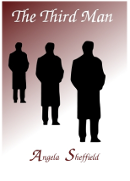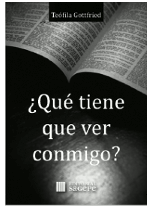Truth really can be stranger than fiction.
First Page - Now launched! All the stories are true, or based on real events. Unlimited reading for $4.99 / month. No downloads. Read on your phone, tablet or computer.
La verdad puede ser más extraña que la ficción.
First Page - ¡Ya está en marcha! Todas las historias son verídicas, o están basadas en hechos reales. Lectura ilimitada por $4.99 / mes. No hay que descargar nada. Lea en su teléfono, tableta u ordenador.
Manna Minutes Podcast: Eye-opening Bible study in less than five minutes! Access all episodes here.
Manna Minutes en español:
Estudio bíblico que nos hace abrir los ojos en menos de cinco minutos! Acceda a todos los episodios aquí.
Manna Minutes Podcast auf Deutsch:
Augenöffnendes Bibelstudium in weniger als fünf Minuten! Alle Episoden finden Sie hier.
Was There A Curse On Helen's Romantic Life?
The Third Man by Angela Sheffield is based on a true story. Read chapter one now!
View Content By Specific Category
¿Qué tiene que ver conmigo? por Teófila Gottfried
Lo que leemos en la Biblia tiene que ver con todos los seres humanos, sean cristianos o judíos, ateos o agnósticos, budistas, musulmanes o adherentes a alguna de las filosofías o nuevas religiones que surgen en el mundo. ¿Por qué? Ver mayor información sobre este interesante libro.
Scripture of The Day - St. John 14:6
Jesus saith unto him, I am the way, the truth, and the life: no man cometh unto the Father, but by me.
Escritura del día - San Juan 14,6
Jesús le dijo: Yo soy el camino, y la verdad, y la vida; nadie viene al Padre, sino por mí.
Bibelstelle des Tages - Johannes 14,6
Jesus spricht zu ihm: Ich bin der Weg und die Wahrheit und das Leben; niemand kommt zum Vater, denn durch mich!
The Definition of Hatred in the Bible: When Christians Hate

Jesus taught his followers to love their enemies (KJV, Matthew 5.44). Why then did king David, a servant of God who lived during Old Testament times, state, "Do not I hate them, O Lord, that hate thee? And am not I grieved with those that rise up against thee? I hate them with perfect hatred. I count them mine enemies" (Psalm 139.21-22).
Should it be said that it was acceptable for God's Old Testament servants to hate their enemies, but New Testament Christians, on the other hand, must love those who do them wrong? If so, would this not constitute a major change in the very personality of God who said that he does not change? (KJV, Malachai 3.6)
Christian Hatred in the Scriptures
The posing of such questions surrounding David's statement is a prime example of the grave mistake it is to apply a modern English dictionary definition of a word used in biblical scripture. Proverbs 13.24 says, "He that spareth his rod (chooses not to physically discipline his child) hateth his son, but he that loveth him, chasteneth him betimes (from an early age)". Obviously, the scripture of proverbs is not saying that an irresponsible parent who will not spank or whip his child, literally hates him. Likewise, the scripture is not saying that the parent who does spank or whip his child, necessarily loves him. The words "love" and "hate" are often used in the Bible to indicate the making of a choice of one thing or person over another. They indicate if there are dealings with that thing or person, and if so, what kind of dealings they are.
Another example of such employment of these words is seen in the scripture of Luke 14:26 which says, "If any man come to me and hate not his father and mother and wife and children and brethren and sisters, yea and his own life also, he cannot be my disciple."
Again, it should be evident that Jesus is not teaching anyone to literally hate his family members. Ephesians 5:28-29 plainly instructs a man to love himself and also his wife. Jesus is simply emphasizing that his servant must not place anyone BEFORE him, not even the closest of relations (KJV, Matthew 10.37).
Further proof of the use of "love" and "hate" in the Bible indicate free will to choose, the choice itself, and dealings with someone or something. This is seen in St. John 12:25 which says, "He that loveth his life shall lose it, and he that hateth his life in this world, shall keep it unto life eternal."
Christ is not telling anyone to literally hate his own life. Hatred of oneself is NOT of the Lord (Ephesians 5:28-29). The person who loves his life, chooses to care more for his comfort in this present world, even at the expense of giving up his eternal life in the hereafter. The person who hates his life, chooses to hold on to eternal life to be enjoyed in the world to come, even when his decision leads to martyrdom in the present. This is why Jesus said, "No man can serve two masters, for either he will hate (reject) the one and love (choose) the other; or else he will hold to the one and despise (count as inferior) the other. Ye cannot serve God and mammon (riches)" (Matthew 6.24).
Note that the word "despise" in the Bible seldom denotes hatred, but rather an act of belittling someone or something. Confusion over the words "love" and "hate" has caused a host of misinterpretations of the scripture of Romans 9:13 which speaks of God's love of Jacob and his hatred of Esau.
Returning to the scripture of the Psalm in which David spoke of his hatred for the enemies of God, it should be noted that in the nineteenth verse of the same chapter (139th), David is seen telling the enemies of the Lord to depart from him. He tells them to get away from him, because he will not do the things they do. Consequently, he will not have any dealings with them in their wicked deeds. David took an unwavering stance on the side of the Lord, the master he chose to serve. This was his choice to love (choose) God. He also completely rejected the things and deeds of the enemy of God; and showed a perfect hatred for all of them. This is the meaning of Christian hatred according to the Christian Bible.
 Based on true events, The Third Man by Angela Sheffield, brings the Bible up close and personal as the characters face real issues of life: Betrayal, deceit, romance, bitterness, anger against God, hopelessness, will power, perplexity, triumph, unforgiveness, mental illness, and the "Alcohol made me do it" excuse. Read chapter one FREE now.
Based on true events, The Third Man by Angela Sheffield, brings the Bible up close and personal as the characters face real issues of life: Betrayal, deceit, romance, bitterness, anger against God, hopelessness, will power, perplexity, triumph, unforgiveness, mental illness, and the "Alcohol made me do it" excuse. Read chapter one FREE now.
Copyright notice: This website and its content is copyright of © Heavenly Manna (HeavenlyManna.net) 2002-2025.
Comments/Comentarios:
Send Comments or a Private Message about One of Our Services / Envíe Comentarios o un Mensaje Privado acerca de nuestros servicios
Once comments reach 10, they close. IF YOU USE PROFANITY, WE WILL REJECT YOUR COMMENT AUTOMATICALLY.
We're a small team, please be patient as we review comments.
©2003 - 2013 Heavenly Manna Ministries
Images: courtesy of Free Digital Photos, openstockphotography.org, FreeFoto.com, Wikimedia Commons. Multiple crosses image - Wikimedia Commons - C.G.P Grey - Animation by Heavenly Manna










